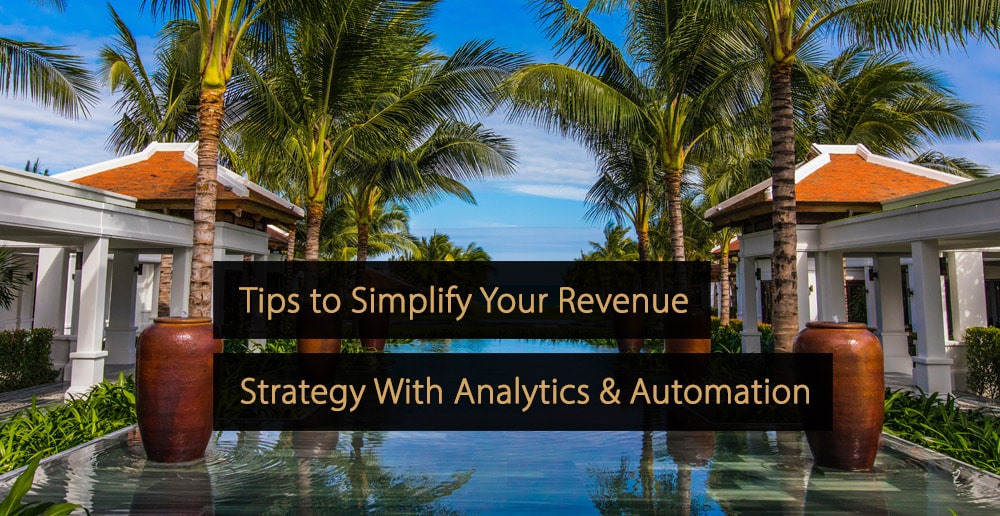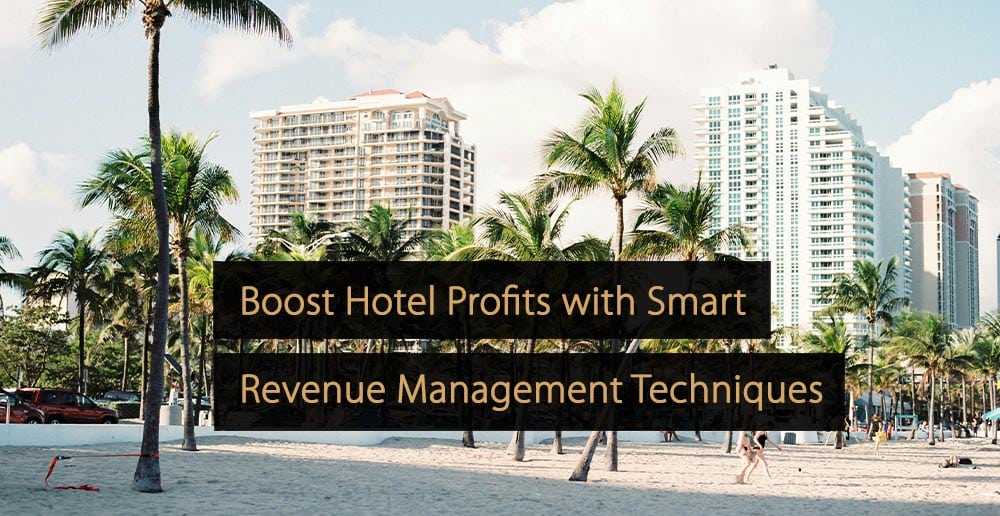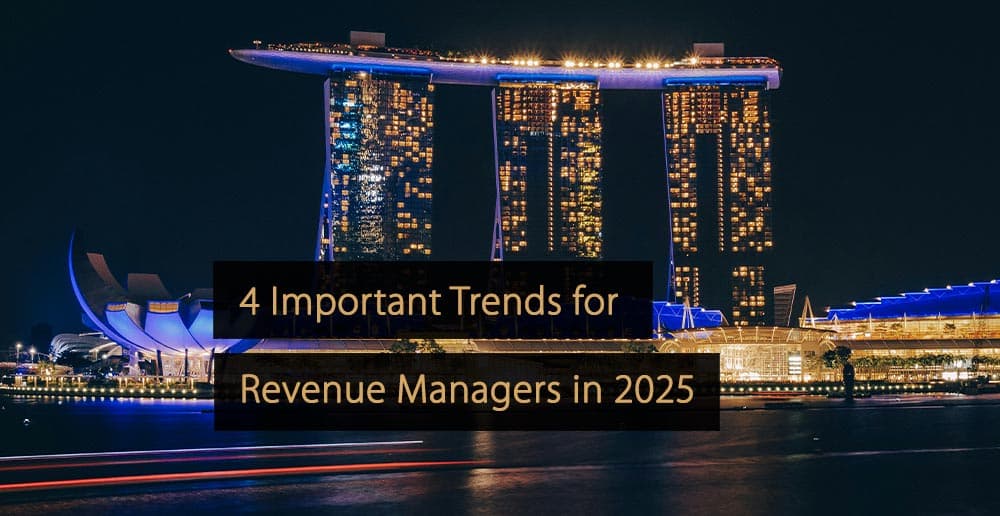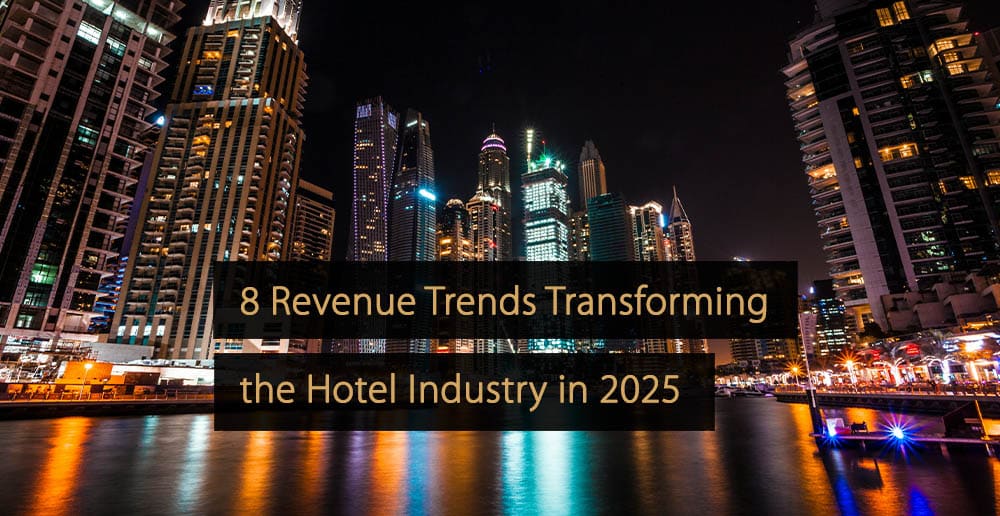As a revenue manager, analytics and automation probably aren’t new to you. But recent developments in tech, like predictive analytics, forward-looking data and live insights, take revenue management to a whole new level. Especially in the looming recovery phase, these capabilities can drastically increase your chances of success even with unpredictable markets.
Leaving Historical Data Behind
Before Covid-19, your historical data was a reliable base for forecasts and business predictions for the upcoming year. But the pandemic brought unexpected and drastic changes to demand patterns and hotel markets around the world.
Now, it’s impossible to compare year-over-year data or even the numbers from recent months. The unforeseeable changes to travel restrictions make this impossible because they keep causing demand shifts. All this means historical data is not nearly as meaningful for future planning.
So, what other data can you base your forecasts on? There’s a straightforward answer: Live and forward-looking data. Using them is the only way to detect early signs of returning demand.
Developing Strategies as a Cluster
Pre-Covid, revenue managers would review their strategies on a monthly or quarterly basis. Today’s erratic changes at unpredictable intervals make it necessary to do this weekly or even daily. Fast reactions are essential right now if you want to take advantage of sudden opportunities in your market. It’s crucial to gather and analyze large quantities of data to make good choices in this fast-moving setting.
For cluster revenue managers, this can be particularly difficult. You must collect and assess more information than a single-property revenue professional, but you don’t get more time for it.
Now your idea may be to ask the teams at your properties to support you with data collection. The problem here is that they’re probably working with reduced staff and have many other obligations. Tasking them with collecting data for you would put an extra burden on them. Waiting for them to get back to you may also delay when you can start working on your strategies.
The best option here is for the cluster revenue manager to implement a system that automates data collection. For starters, this cuts down the time you spend gathering data. Second, it immediately provides you with the information you need to develop strategies and make recommendations for the properties you look after.
The Importance of Quick Decision-Making Today
In the recovery phase, quick data-driven decision-making will be crucial. All your competitors will compete fiercely for returning business. Detecting trends ahead of the other players is your only chance to grab revenue opportunities before your compset.
Leveraging live demand and market data is the most efficient and effective method of doing this. Unfortunately, gathering and organizing live data manually isn’t possible. It would take way too much time, and the information would likely be outdated by the time you use it.
Solve this issue by using an automated system to collect live market and competitor data. Get the best outcome by choosing a business intelligence (BI) solution that provides live, on-demand reporting. That way, you’ll always have the most current numbers at your fingertips anytime you need them. Otherwise, you’ll end up spending even more time bringing your reports up to date.
Save extra time by implementing a fully automated RMS (revenue management system) to speed up data collection and pricing decisions. Having an RMS slashes your manual workload because it makes optimized pricing suggestions whenever there’s a change in the market. The crux is to find a reliable system that takes a maximum of variables into account. Look for an RMS that factors in points like competition performance, search volume, flight searches, search-to-book ratio and other points that impact demand for your property, if you can find a system that uses machine learning and AI to continuously improve its pricing suggestions, even better.
While all revenue professionals can benefit from innovative RMSs and BI tools, cluster revenue managers stand to gain the most. These systems provide the real-time information you need to support all your properties with quick, data-driven decisions.
Spend Less Time Selling Your Strategy
Getting your executive committee and other commercial departments on board with your ideas can cost time. This is especially true during challenging times when everyone has views on how best to weather the storm.
Revenue managers are known to work with number-heavy, cumbersome reports. Department heads which are less knowledgeable about the topic may find these reports hard to read and understand. This can lead to you spending a lot of time answering questions and justifying your strategy.
Use tools that automatically generate visually appealing forecasts and reports to keep this problem from arising. That’ll allow you to present your strategy in a way everyone can follow. If someone does have a question, you can point to the given data to address their query.
Free Calculator: Revenue Management System ROI Calculator
With this revenue calculator, you discover how much revenue uplift a revenue management system can generate for your hotel. By answering a few short questions, the revenue calculator shows your hotel’s revenue potential within a few minutes.
Click here for the “Revenue Management System – Return on Investment Calculator”.
Automation does more for revenue managers than just cut back on manual work. It simplifies data-driven pricing and highlights new market trends from the first moment. Lastly, it helps you reduce the time spent on lengthy strategy discussions. Use this time to form solid strategies and get your property or cluster through these tough times, and you’ll make the most of recovery once it sets in.
More Tips to Grow Your Business
Revfine.com is the leading knowledge platform for the hospitality and travel industry. Professionals use our insights, strategies, and actionable tips to get inspired, optimize revenue, innovate processes, and improve customer experience.Explore expert advice on management, marketing, revenue management, operations, software, and technology in our dedicated Hotel, Hospitality, and Travel & Tourism categories.








Leave A Comment